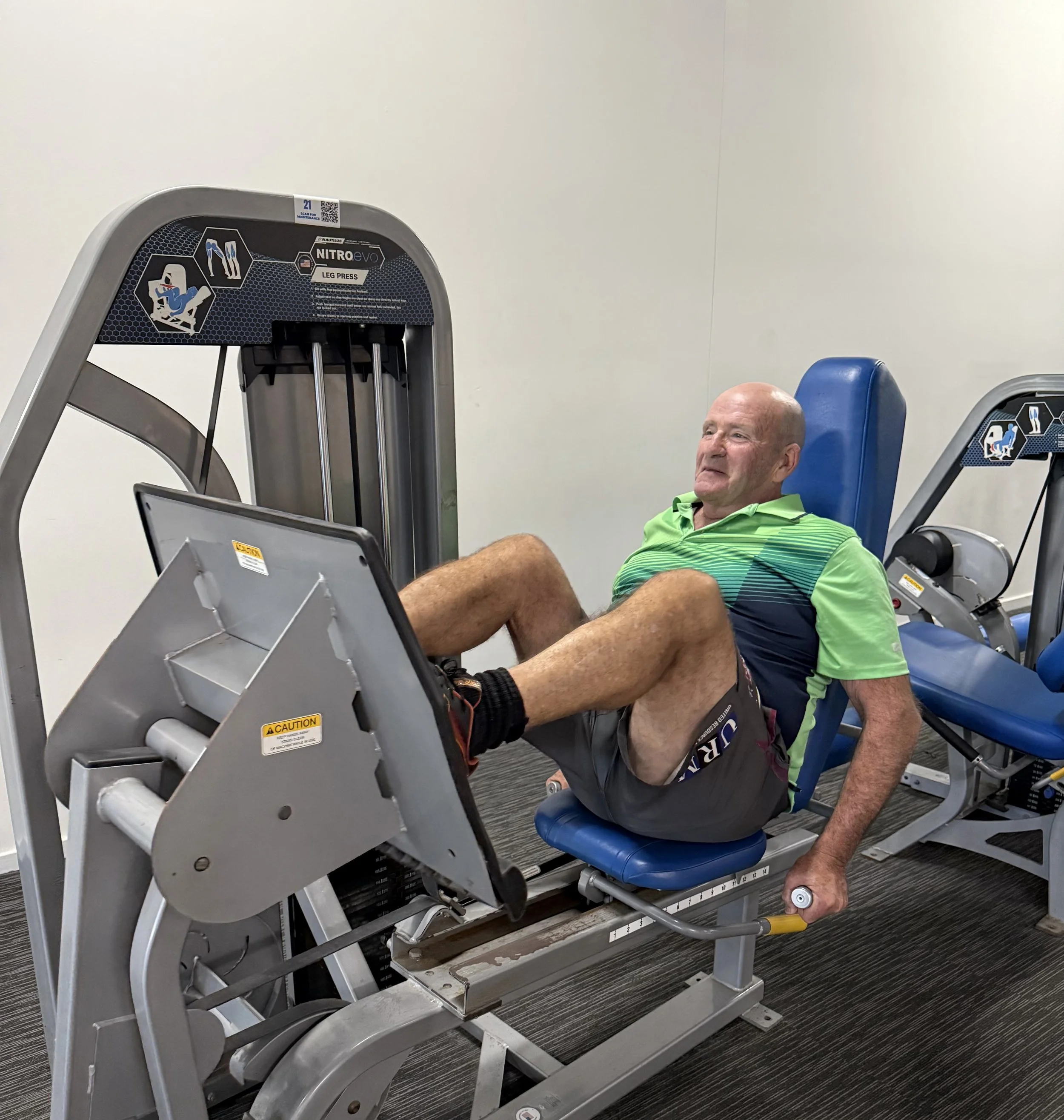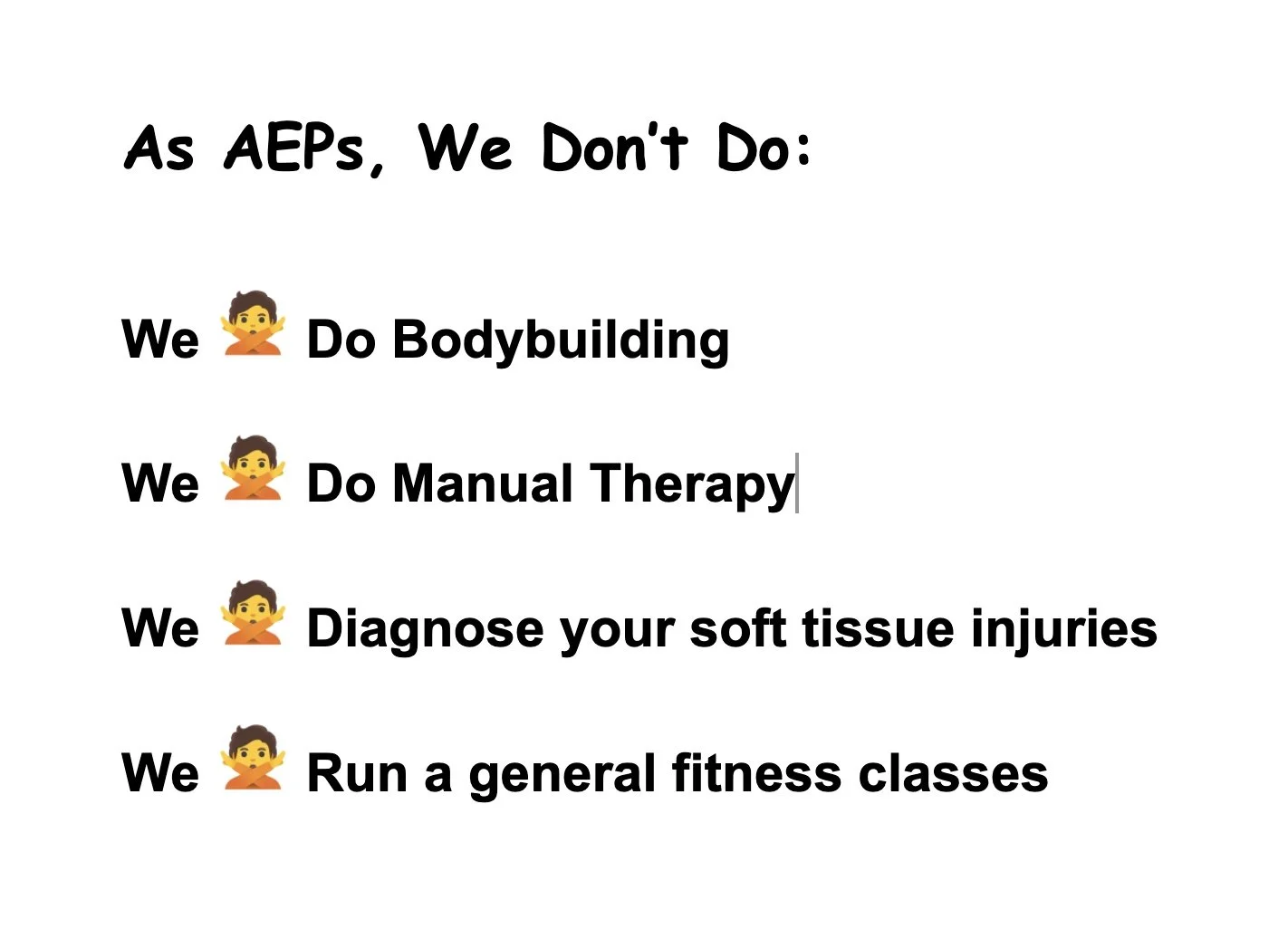What does an Accredited Exercise Physiologist do?
What is an Accredited Exercise Physiologist?
According to ESSA (Exercise & Sport Science Australia), Accredited Exercise Physiologists (AEP) are University qualified allied health professionals equipped with the knowledge, skills and competencies to design, deliver and evaluate safe and effective exercise interventions for people with acute, sub-acute or chronic medical conditions, injuries or disabilities.
AEPs are recognised allied health providers under Medicare, WorkCover, Department of Veterans' Affairs (DVA), Support at Home (formerly Home Care Packages), the National Disability Insurance Scheme (NDIS), and most private health insurers. They specialise in managing complex health conditions, using clinical reasoning and evidence-based practice to design tailored programs that support both physical and mental wellbeing.
Where you can find AEPs:
🏥 Hospitals
🏨 Medical centres
🏢 Allied health clinics
👵🧓 Aged care facilities
🏋️♂️ Gyms and fitness centres
⚽🏀 Sports teams
🧰 Occupational rehabilitation services
So what do AEPs do?
Due to tertiary training and understanding of human physiology, AEPs use Exercise to help to manage a whole range of chronic and complex health conditions, including but not limited to:
Cardiovascular disease
Metabolic disease
Musculoskeletal injuries and conditions
Pre- and post-operative rehabilitation
Neurological diseases and injuries
Cancer
Respiratory conditions
Mental health
How AEPs support you?
Initially, an AEP will have a conversation with you to understand where you’re starting from, including but not limited to:
Your diagnosis
Function limitations
Clinical goals and your goals
Personal preferences
Your lifestyle and mental health needs
Based on this information, an AEP conducts a Comprehensive Initial Assessment to understand your medical history, lifestyle history, current limitations, functional capacity, and goals, this may involve:
Musculoskeletal assessments (range of motion, posture, strength)
Balance and mobility testing
Cardiorespiratory fitness testing
Pain and fatigue questionnaires
Functional movement screenings
Individualised Exercise Program
Once we understand your starting point, we design a tailored exercise program that may include:
Strength and conditioning
Cardiovascular training
Balance and fall-prevention exercises
Mobility and flexibility routines
Pain management strategies
Breathing and mindfulness techniques
Posture correction
Gait retraining
Education and Behaviour Change Support
Exercise isn’t just about reps and sets—it’s about understanding your body and building the body-mind connection and long-term habits. AEPs spend a big chunk of their time educating clients on movement, injury prevention, and self-management strategies.
We teach you:
Why certain exercises are beneficial
How to modify movements – make them easier or harder
How to listen to your body
How to manage yourself during flare-ups and develop a strategy to manage them
How to build confidence around movement again
Our goal is to guide you through an evidence-based approach that helps you feel stronger, move better, and improve the enjoyment of your life. We provide an experience that allows you to see real progress and long-term results.




